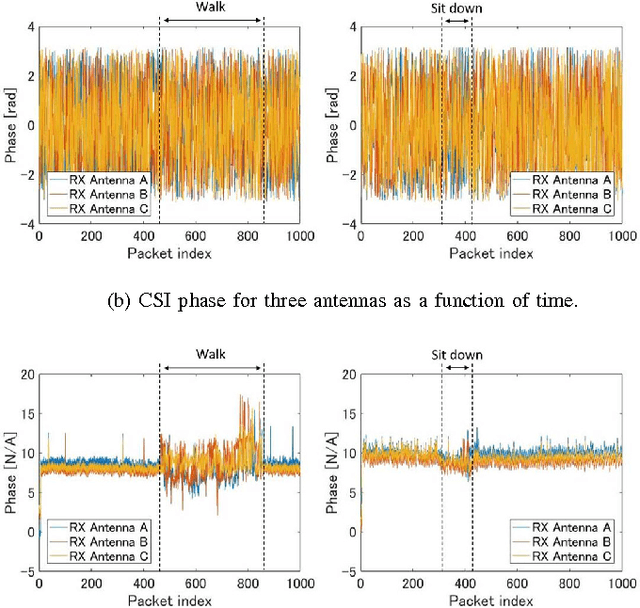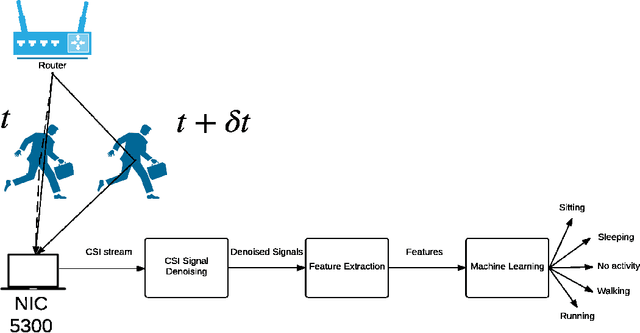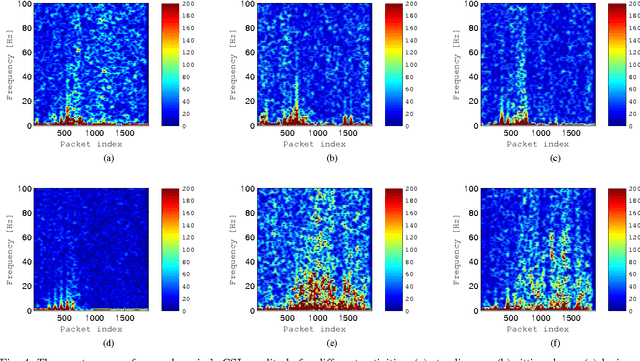A Survey of Human Activity Recognition Using WiFi CSI
Paper and Code
Aug 23, 2017



In this article, we present a survey of recent advances in passive human behaviour recognition in indoor areas using the channel state information (CSI) of commercial WiFi systems. Movement of human body causes a change in the wireless signal reflections, which results in variations in the CSI. By analyzing the data streams of CSIs for different activities and comparing them against stored models, human behaviour can be recognized. This is done by extracting features from CSI data streams and using machine learning techniques to build models and classifiers. The techniques from the literature that are presented herein have great performances, however, instead of the machine learning techniques employed in these works, we propose to use deep learning techniques such as long-short term memory (LSTM) recurrent neural network (RNN), and show the improved performance. We also discuss about different challenges such as environment change, frame rate selection, and multi-user scenario, and suggest possible directions for future work.
 Add to Chrome
Add to Chrome Add to Firefox
Add to Firefox Add to Edge
Add to Edge